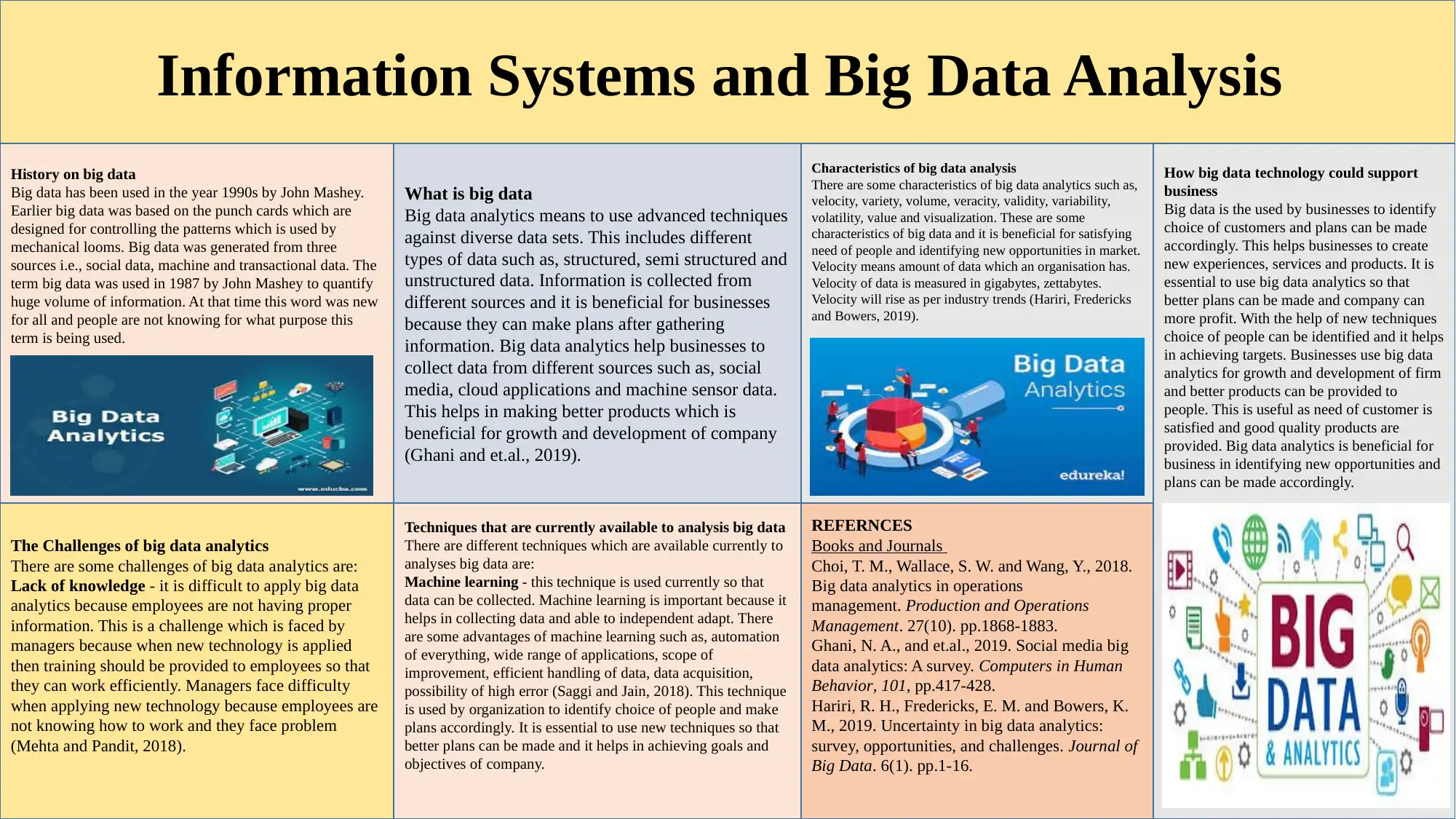Information Systems: History, Challenges, and Techniques in Big Data
VerifiedAdded on 2023/06/16
|1
|771
|59
Essay
AI Summary
This essay provides a comprehensive overview of big data analytics, starting with its historical roots in the 1990s and the evolution of the term. It identifies key challenges in big data analytics, such as the lack of employee knowledge and the difficulties managers face when implementing new technologies. The essay defines big data analytics as the application of advanced techniques to diverse datasets, including structured, semi-structured, and unstructured data, sourced from social media, cloud applications, and machine sensors. It highlights machine learning as a crucial technique for data collection and independent adaptation, emphasizing its advantages like automation and efficient data handling. Furthermore, the characteristics of big data analysis, including velocity, variety, volume, veracity, and value, are discussed. The essay concludes by emphasizing how businesses leverage big data analytics to understand customer preferences, create new products and services, and identify market opportunities, ultimately driving growth and development.



![[object Object]](/_next/static/media/star-bottom.7253800d.svg)